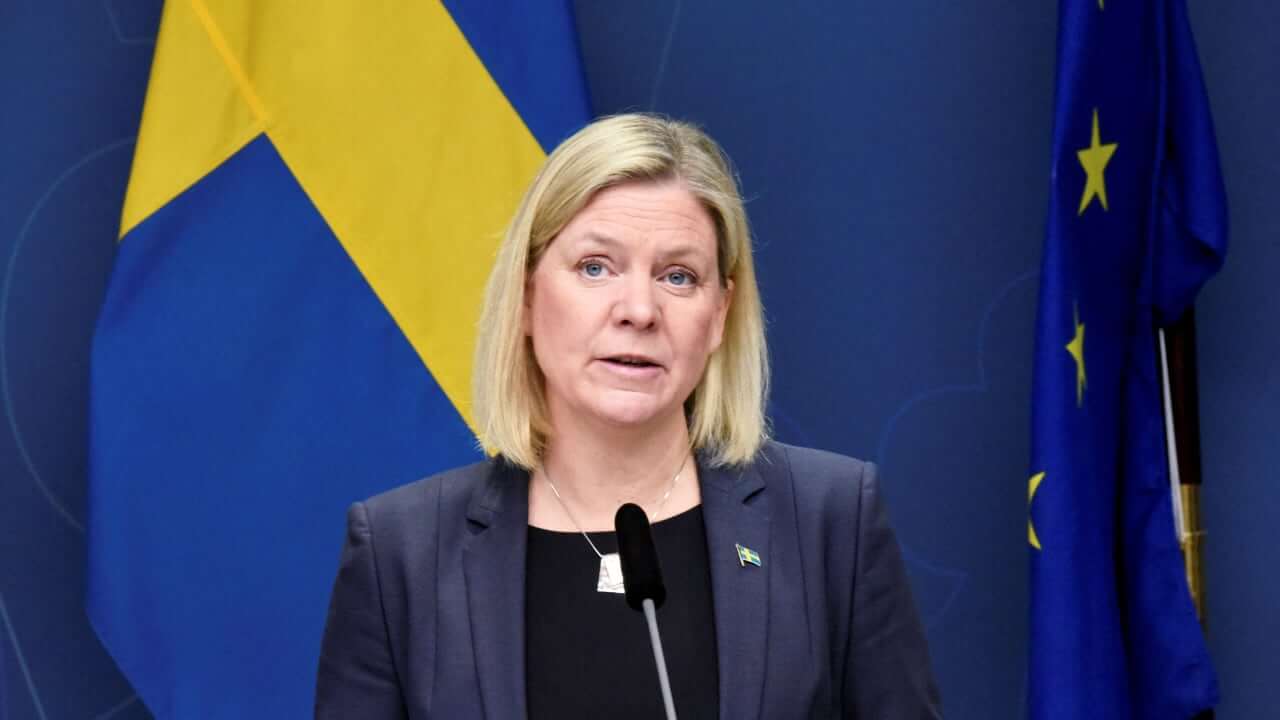On Wednesday, Swedish Prime Minister (PM) Magdalena Andersson refused to rule out North Atlantic Treaty Organization’s (NATO) membership despite Russian threats of severe consequences.
While speaking to state broadcaster SVT, Andersson said, “I do not rule out NATO membership in any way,” adding, “But I want to make a well-founded analysis of the possibilities open to us and the threats and risks involved, to be able to take the decision that is best for Sweden.”
Big shift in Sweden's Nato debate - prime minister is no longer ruling out applying for membershiphttps://t.co/aq78Uwk1g1 pic.twitter.com/4EZ9782nZv
— Richard Milne (@rmilneNordic) March 30, 2022
Earlier this month, Andersson had warned that applying for NATO membership amid the Russian invasion of Ukraine could further destabilise European security. However, her warning was quickly rebuffed by opposition parties. In this respect, the opposition Moderate Party has promised to apply for NATO membership if they win the upcoming election on September 11, with most parliamentarians supporting the idea.
Furthermore, Andersson’s Social Democrats party also decided against joining NATO at their annual congress. But during the SVT interview, Andersson said the decision was taken during a different geopolitical situation and could be revised. “We should note that non-alignment has served Sweden well. It has kept us out of conflicts,” she said, adding, “But when the whole map of security politics is being rewritten, you need to update your analysis and take your decision based on that.”
At the same time, German Chancellor Olaf Scholz said that other European countries would come to Sweden’s defence in case of a Russian attack, even though the country is not a NATO member. Speaking at a joint conference with Andersson in Berlin on Monday, Scholz noted the European Union’s (EU) “mutual assistance clause” by declaring, “When it comes down to it, it can be relied upon.”
According to latest polls a majority of people in both #Finland 🇫🇮 (60%) and #Sweden 🇸🇪 (51%) now support their country joining #NATO.
— Thomas van Linge (@ThomasVLinge) March 23, 2022
The #Kremlin's invasion of #Ukraine 🇺🇦 has turned almost the entire continent against it. pic.twitter.com/KZ68CUO3nu
Both Finland and Sweden have been wary of joining NATO due to the threat of Russian reprisals, fearing that they could be Moscow’s next target after Ukraine. However, following the Russian invasion of Ukraine, the majority of the Swedish population are now in favour of joining the United States-led military alliance. In a poll by Kantor-Sifo, 59% of respondents supported NATO membership if Finland also joined the alliance, 24% remained undecided, and 17% opposed the membership.
With war next door, Finland, Sweden train with NATO.
— AFP News Agency (@AFP) March 24, 2022
Russia's invasion of Ukraine has shifted public opinion in the two Nordic nations. For the first time, a majority of Swedes and Finns have come out in favour of joining NATO, according to opinion pollshttps://t.co/dFCE4z8cp6 pic.twitter.com/xT1Q5vvaaA
Likewise, in Finland, a recent poll by Helsingin Sanomat reported that 61% approve of NATO membership, whereas only 16% are against it. While commenting on Finland’s NATO membership, President Sauli Niinistö has accepted that the Alliance’s membership could lead to a reckless response from Russia, including territorial or airspace violations. Nevertheless, he also acknowledged that NATO membership would deter aggression against Finland via Article 5 of NATO’s charter, which stipulates the principle of collective defence.
BREAKING:
— Visegrád 24 (@visegrad24) March 30, 2022
Swedish TV4 has revealed that two of the four Russian aircraft that violated Swedish airspace a few weeks ago, were carrying nuclear weapons while doing it.
Swedes are outraged. pic.twitter.com/0bbHGNr2Dp
The Finnish government has held wide-ranging discussions on NATO membership since last month but has refused to fill the NATO emergency membership applications. Despite this, Finland has gathered support, with Scholz welcoming Finland’s interest in the alliance.
Meanwhile, Finland’s intelligence service has warned against possible Russian intervention and hybrid attacks. Supo, the Finnish Security Intelligence Service, has said, “Finnish society, as a whole, should be prepared for various measures from Russia seeking to influence policymaking in Finland on the NATO issue.” The agency further warned that Moscow could resort to “old-fashioned tactics,” such as blackmailing politicians or releasing fake videos, to influence policy decisions.
In fact, it has emerged that just a few weeks ago, two nuclear-armed Russian aircraft violated Swedish airspace, possibly as an act of intimidation.

